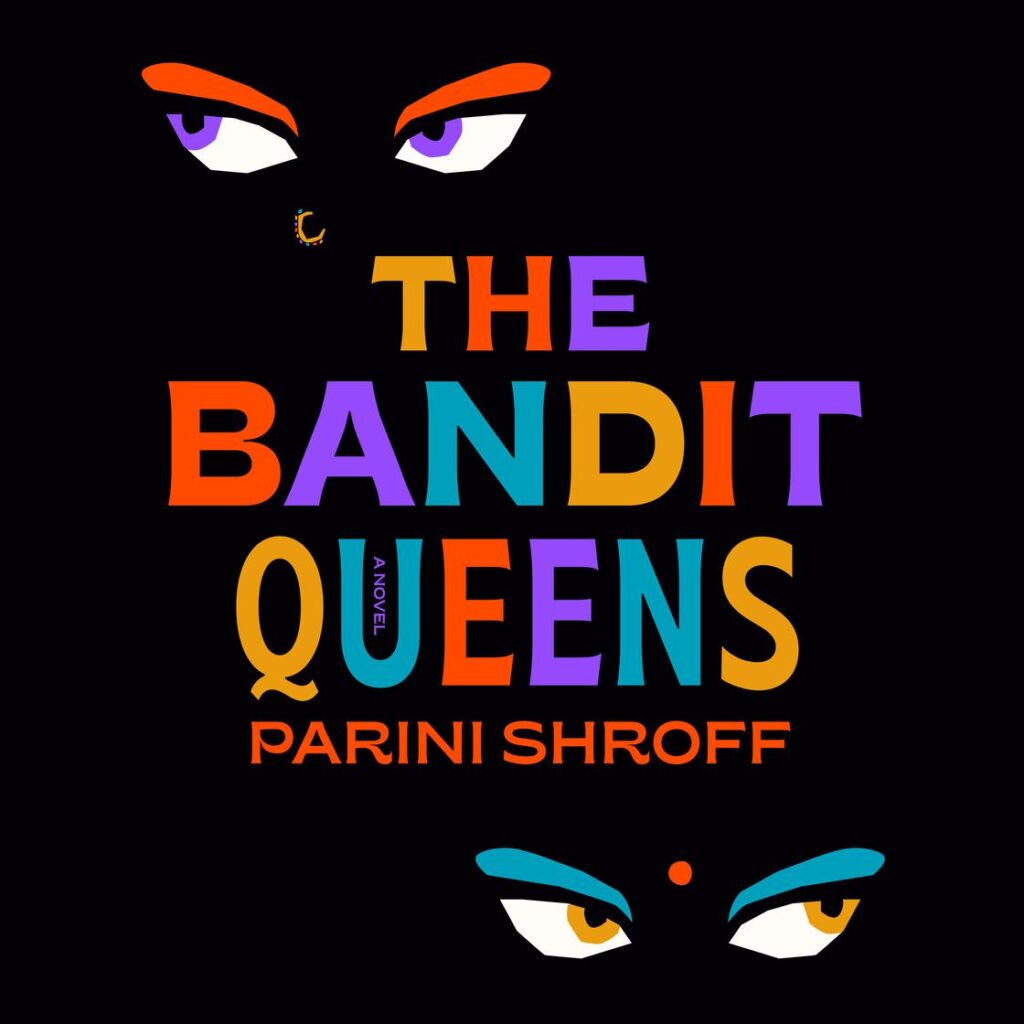
The new year has only just begun and 2023 is already boasting promising book releases. Among those is “The Bandit Queens,” a fiction novel published on Jan. 3 and written by Indian-American author Parini Shroff. A resident of the San Francisco Bay Area, Shroff is a practicing attorney and graduate of the University of Texas. She has recently ventured into the realm of writing, with “The Bandit Queens” being her debut novel.
Set in a rural Indian village, “The Bandit Queens” follows Geeta, an outcast with a formidable reputation. Ever since her husband mysteriously vanished five years ago, rumors have spread that Geeta killed him. Surprisingly enough, this misinformation has come with great perks. Fearful of Geeta’s murderous capabilities, none of the villagers dare mess with her, or attempt to control her, as is normal for women in the patriarchal society she lives in, where wives are expected to obey their husbands and carry out their every demand.
“What follows is a wildly entertaining blend of hilarity, twistiness and female empowerment as the group of women come together to reclaim their lives and take back control from the abusive men who attempt to silence them”
Geeta’s blissful, widowed lifestyle has not gone unnoticed by the other wives in the village. Desperate to get rid of their own troublesome husbands, other women begin tentatively seeking out Geeta’s assistance. And soon enough, husbands around the village begin inexplicably dropping dead, one by one.
What follows is a wildly entertaining blend of hilarity, twistiness and female empowerment as the group of women come together to reclaim their lives and take back control from the abusive men who attempt to silence them.
One of this novel’s greatest strengths is its powerful, diverse cast of female characters.
The story’s lead character, Geeta, is a very multi-dimensional anti-hero that readers can’t help but root for. Although Geeta makes questionable decisions at times and can definitely be considered a morally gray character (she is, after all, an accomplice in multiple murders), she is a woman who has gone through great struggle and hardship.
From the abuse she faced at the hands of her husband to the isolation and bitterness she received from the village after he vanished, Geeta is no stranger to suffering, and because of this, she is very reserved, and cold, wanting to protect herself from getting hurt. That’s why, when Geeta gradually builds connections with the other characters in the novel, those bonds and relationships feel all the more powerful, as does Geeta’s growth as a character.
Beyond Geeta, there are various supporting characters in the novel who, like Geeta, are interesting and well-developed, making the story even more compelling.
Saloni, Geeta’s former best-friend-turned enemy, is a very vivid, outspoken character. The story bounces back and forth between flashbacks of when Geeta and Saloni were childhood friends, their friendship eventually crumbling apart due to Geeta’s marriage, to present day, where the two women are divided over their opposing labels; Geeta, the outcast, and Saloni, the village know-it-all.
Never afraid to make her opinions known, Saloni is initially written off as a petty town gossip, but gradually, she reveals more depth and complexity. She is shown to be an extremely cunning, intelligent woman who knows how to find strength and empowerment in spite of the misogynistic setting.
Kamer, the owner of the town’s liquor store and Geeta’s eventual love interest, is another character who ends up being so much more than he seems to be at the beginning of the novel. A widower and single parent, Kamer, like Geeta, has dealt with great loss throughout his life, something that ultimately unites the two characters together.
In addition to characters, another area in which this book excels is its feminist themes and challenging traditional gender roles.
In Geeta’s patriarchal society, women are “owned” by their husbands, and are solely valued as mothers and wives. Geeta, who has dealt with infertility struggles that have resulted in her being childless at the age of thirty-five, is constantly labeled as “useless” and “incomplete” due to her lack of children. Along with being ridiculed for not being a mother, she is also shamed for her age, with various male characters using it as a weapon to belittle her and make her feel inferior.
“By shining light on gender struggles in the form of hilarious, fast-paced storytelling and intricate characters, Shroff has crafted an excellent debut novel worthy of praise”
Instead of accepting this abuse, Geeta learns to stand up for herself and recognize her worth as an empowered, independent woman. She disregards the sexist tropes that men attempt to force upon her, resulting in other women following her example and finding strength from within.
By shining light on gender struggles in the form of hilarious, fast-paced storytelling and intricate characters, Shroff has crafted an excellent debut novel worthy of praise. With its entertaining plot, vivid cast of characters and empowering themes, “The Bandit Queens” is an absolutely gripping novel that will leave readers longing for more of Shroff’s witty, riveting style. Comedic, cathartic, and captivating, this is a story that readers will not forget, earning four out of five stars.




